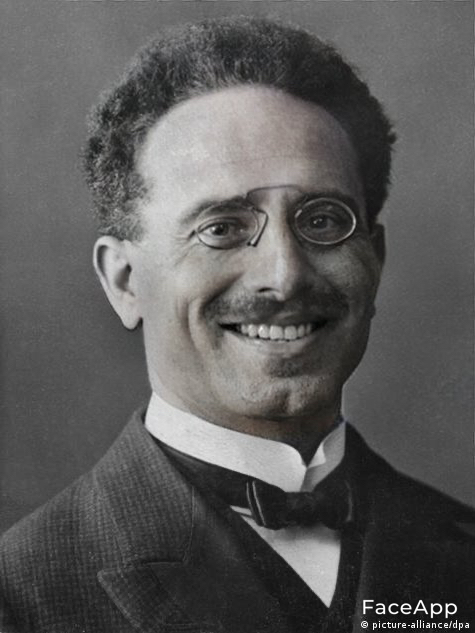I coincidentally just finished this a few days ago, and it's a fantastic read. Parenti lays everything out so clearly, I wish more theory/history was written this way. I really can't recommend it enough, I think it's a great entry point into understanding communism.
I really appreciated Parenti's nuanced take on both the successes and failures of communism. I didn't realize until he pointed it out how much I had internalized the false notion that being a leftist means disavowing communism entirely due to its failures (while ignoring its successes). He does a great job making the case that communism has been a force for good in many ways and that it absolutely should not be thrown by the wayside.
Yeah, I appreciated the nuance in his critique of the late stages of the Soviet system.. I'm curious how those problems would be addressed, especially in light of modern IT.
He says at a couple different points that it's impossible to adequately gather and process all the information needed for a planned economy, but the Soviets were somewhat slow to adopt computers, so I wonder how that could be different in light of the successes of planned economies like China and Wal-Mart, and earlier projects like cybersyn.
I like how nuanced Parenti is. His support of the AES countries is in fact critical and it seems so much more mature than liberals who uncritically equate everything from AES with evil and inefficiency.
Parenti-videos were certainly instrumental in opening my mind to the onesidedness of the cold war propaganda that is still accepted as gospel truth in the west.
Actually Existing Socialism, used to refer to officially socialist countries, like those of the former Warsaw pact.
Yeah, I definitely want to read both of those next as well, I've seen them come up repeatedly in people's recommendations...
Afaik, certain Soviet economists did make meaningful contributions to the theory and mathematics behind logistical and production planning---theory that's put into practice wherever there's a planned economy, like with Wal-Mart.
I mean look at cybersyn. I can only imagine what the Soviet-aligned countries could have accomplished if they'd been allowed to develop on their own terms instead of being squashed by counter-revolution.
Soviets couldn't adopt computers. They made information flow too easily. Heck, Xerox machines were kept under lock and key. But don't trust me, let's ask Marshal Nikolai Ogarkov, First Deputy Defense Minister and Chief of the General Staff:
"We cannot equal the quality of U.S. arms for a generation or two. Modern military power is based on technology, and technology is based on computers. In the US, small children play with computers... Here, we don't even have computers in every office of the Defense Ministry. And for reasons you know well, we cannot make computers widely available in our society. "
Interesting point; that seems to be in line with Parenti's "siege socialism" thesis. However, whether or not that's considered overly authoritarian or justified by the circumstances is one thing, but it's interesting that the CIA and other foreign intelligence agencies had been so successful at infiltrating the USSR regardless.
One thing in this book that always stuck with me was Parenti's description of how Italian neofascists campaigned in order to achieve the goals of fascism within the confines of liberal democracy: using upbeat crowd-pleasers that draw the attention of the media, vaguely attacking "the system" while supporting the strengthening of its repressive aspects, blaming immigrants and minorities, attacking social services, etc. He wrote this decades ago but he might as well be describing any modern far right figurehead, they all follow this exact same playbook.
We just welcomed our second child into the world so I’m running on empty folks. I’ll bring some important info into the body of the post a bit later.
If I were an English or Social Studies instructor, this would be required reading for my class.
This book is great, and one of the most striking things about it is how little seems to have changed. This book was published in the mid 90s and it's still completely relevant:
Here we have a deceptive state of affairs. What poses as a U.S. commitment to peaceful nonviolent change is really a commitment to the violent defense of an unjust, undemocratic, global capitalism. The U.S. national security state uses coercion and violence not in support of social reform but against it, all in the name of "stability," "counterterrorism," "democracy,"-and of late and more honestly, "the free market."
When you look at the rationalizations that follow capitalist imperialism today, it's the same shit, but even more entrenched and reactionary. The all-encompassing propaganda has made people collectively forget the history that he's sketched here---that the U.S. and its allies have actively forced a program of anti-communist counter-revolution on the world throughout the entire past hundred years.
Instead of recognizing that program (rational fascism) and the destructive effect it's had on overall human development, a lot of people cling to mystified, obscured, and nationalistic apologia. I feel like this book in particular is good at
shaking you out of that stuporhelping you to shake off that odious residue.Lmao listen to yellow parenti back in the 70s and it's literally applicable to today stil.
Yeah, I read the book a few months ago and once I got to the chapter discussing post-socialist states, I had to check when it was written. I grew up in Poland in the 90s and it rang so fucking true, the book might have been written like 5 years ago, rather than 15. Ditto for everything else.
uhh...this blew up, 572 comments?!
edit: we got featured, bless up.
I bought this book as a birthday present for myself a few months ago. I only got about twenty pages in, but I was taking notes on everything that Parenti touched on that I wanted to read more about. I ended up with a bullet list of at least 30 items already. Then I started working again, and didn't have as much time to finish it. Now that this post is here, I'll try to pick it back up tonight.
:gulag:
I read this earlier this year but not a lot of the details about it stuck (in the middle of reading something else or I would have re-read to be more a part of this ).
:gamer-gulag:
About the only thing I can remember was that, for the most part, the writing style was accessible. It was less than a few hundred pages that read pretty quickly. (the copy I downloaded was missing a few pages and had at least two different sections where several pages were in the wrong order that threw me off for a while.)
Though there were parts where Parenti went off into the weeds and left my baby brain behind when talking about some threads of case/effect in history.
The longer foot notes almost needed footnotes :dean-smile: because I'm so lacking in historical education that I got lost. But not any worse than when I read Conquest of Bread.
I haven't reread this since I last did maybe three years ago but if anyone here reading the comments wondering if they should read this or make it priority over other books, DO IT. One of the most important reads I've ever done. It's such a good medium-ish entry point in actually understanding more of the nuance of communism that goes beyond basic theory but isn't overly complicated. 5 stars.
The thing that stood out to me in particular about this first part was how well Parenti explains Italian fascism. It's one of those topics that is not talked about that much, probably because it contains far fewer of the scary occult things that come with the Nazis. It is harder to ignore the liberal similarities in Italian fascism.
Another thing that stood out was Schlageter and the way that play portrays class politics against the Volk. Hitler was not devoid of the rhetoric that Mussolini employed, the stuff that acknowledged the existence of class and showed some vague populism. It is more evident with the Brownshirts, but even in a refined form it can be seen.
Look, Papa, upper, lower, poor, rich, that always exists. It is only the importance one places on that question that's decisive. To us life is not chopped up into working hours and furnished with price charts. Rather, we believe in human existence as a whole. None of us regards making money as the most important thing; we want to serve. The individual is a corpuscle in the bloodstream of his people.
Parenti:
The son's comments are revealing: "the class struggle is dying out." Papa's concern about the abuses of class power and class injustice is facilely dismissed as just a frame of mind with no objective reality. It is even falsely equated with a crass concern for money. ("None of us regard making money as important.") Presumably matters of wealth are to be left to those who have it. We have something better, August is saying: a totalistic, monistic experience as a people, all of us, rich and poor, working together for some greater glory. Conveniently overlooked is how the "glorious sacrifices" are borne by the poor for the benefit of the rich.
The position enunciated in that play and in other Nazi propaganda does not reveal an indifference to class; quite the contrary, it represents a keen awareness of class interests, a well-engineered effort to mask and mute the strong class consciousness that existed among workers in Germany. In the crafty denial, we often find the hidden admission.
Back when I was getting into leftism and thought I knew what fascism was, this unexplainable thing that cannot be fathomed and holds no internal consistency or rational, I would not have understood the importance of something like this. Fascism is not just right wing populist rhetoric, you cannot just look at fiery right wing speeches and say that's just like the Nazis, or machismo = Mussolini, fascism has a distinct character to it and the Volk is not just patriotism or nationalism



